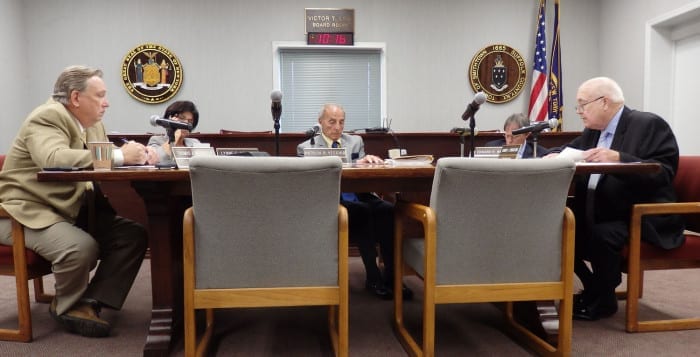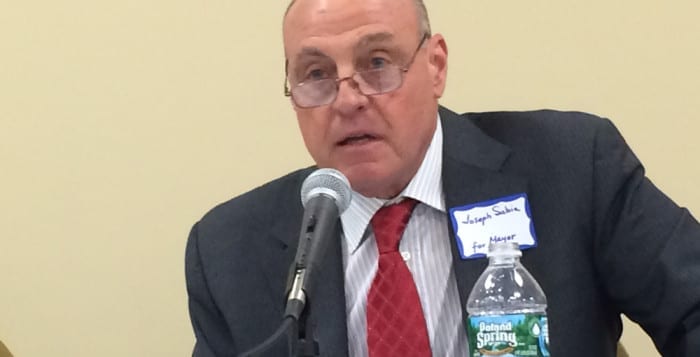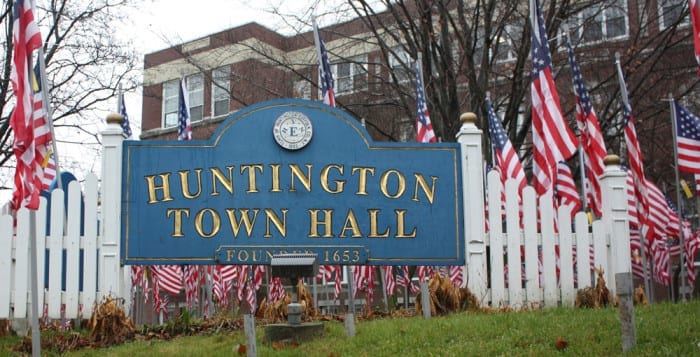McCarthy, Nowick, Vecchio vote again to table Creighton’s proposal to pay seasonal workers $9 an hour
A previously tabled motion to increase the minimum wage for Smithtown employees was sidelined once again, and the town board is at odds over the reasoning behind it.
Councilman Bob Creighton (R) had initially proposed, at a work session in August, to raise the town’s minimum wage from $8.75 to $9 per hour as of April 2016, but Councilwoman Lynne Nowick (R) later floated a motion to table the proposal, which was unanimously approved. The measure reappeared on Tuesday’s Smithtown Town Board meeting agenda and Nowick once again voted to table the discussion, drawing 3-2 split from councilmembers, with support from Councilman Tom McCarthy (R) and Supervisor Pat Vecchio (R).
“This doesn’t mean I am not in support of this,” Nowick said, in justifying her decision to table the proposal a second time, after Councilman Ed Wehrheim (R) had publicly asked her to explain her decision. “I want to look at the budget, which is not due for another 30 days or so.”
In a phone interview, Creighton said he was caught off guard by the decision to table the proposal a second time, and the councilwoman’s explanation to wait for the budget process early next month bewildered him.
“It does not seem to be a justification, in my mind, for postponing the vote,” said Creighton, who, along with Wehrheim, voted against Nowick’s motion to table the proposal for a second time. “You’re either for it or against it.”
Creighton said the 25-cent raise for the town’s roughly 150 seasonal workers making $8.75 an hour — would ultimately cost roughly $23,000, which he said could be factored into the budget now so the budget process could react accordingly.
“The actions of those three are asinine,” Creighton said. “It’s an insult to the kids who are working hard in this town.”
Wehrheim said he was concerned with the way the procedure went through, given the fact that the councilmembers who voted against the resolution had weeks since it was last tabled to voice their concerns regarding its financial impact on the town. He said the $9 minimum wage proposal was not only in line with state law, but was also run by Vecchio, Comptroller Donald Musgnug and the town’s personnel department, which he said validated the proposal.
“Not one word was uttered about any intention to table that resolution,” Wehrheim said. “The time to have that discussion was certainly at our work session. I know Councilwoman Nowick said she’d rather look at the budget first, but there is no reason to. I don’t think it’s fair to the public.”
Musgnug had no comment on the matter. But Vecchio later said Creighton’s resolution was a politically motivated decision, as most town workers were already making more than $9.
Over the last several months, Smithtown resolutions for municipal hires showed workers being hired at rates anywhere from as low as $8 to as high as $16 per hour. The town, however, is not legally bound to abide by a minimum wage.
McCarthy, who voted in favor of tabling the discussion alongside Nowick and Vecchio, said in a phone interview that he was in favor of raising the minimum wage to $9 an hour for the town’s seasonal workers, but believed it should be put into the budget. He also said he and his fellow councilmembers had full intentions of seeing the raise put into effect through the budget.
McCarthy said everyone on the board was ultimately in favor of raising the minimum wage, but they disagreed over how to implement the change.
“Going up to $9 is not a problem,” McCarthy said. “But the process is not putting it into a resolution. We’ve never done that before, ever. I tabled it because I will be putting it into the budget myself, definitely.”
In a similar instance last year, McCarthy had put forward a successful 3-2 resolution to increase the salary of the deputy supervisor — his own position — by $30,000, but ultimately rescinded the decision and said he would rather see that call come via the budgeting process. The raise was later included in the 2015 budget and passed.









